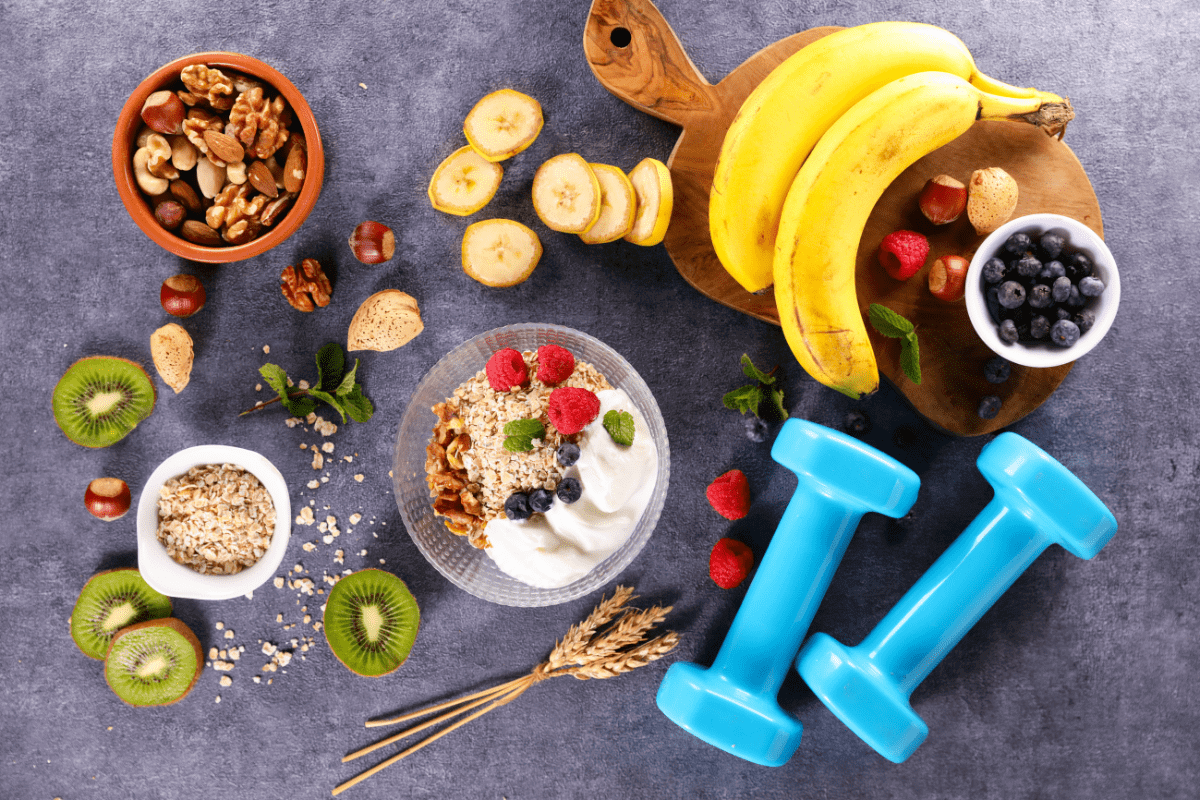The Role of Nutrition in Recovery and Performance
Nutrition is a fundamental component of athletic performance and recovery. What you eat significantly affects your body’s ability to perform during exercise, recover afterward, and maintain overall health. Understanding the connection between nutrition, performance, and recovery can help athletes, fitness enthusiasts, and anyone looking to enhance their physical capabilities optimize their diets for better results.
1. Understanding Macronutrients
Macronutrients—carbohydrates, proteins, and fats—are the primary sources of energy and play specific roles in performance and recovery.
Carbohydrates
Carbohydrates are the body’s main source of energy, especially during high-intensity exercise. They are stored in the muscles and liver as glycogen, which is crucial for endurance activities and high-intensity training.
Role in Performance: Carbs provide the necessary fuel for sustained energy during workouts. Inadequate carbohydrate intake can lead to fatigue, decreased performance, and impaired recovery.
Sources: Whole grains, fruits, vegetables, legumes, and starchy foods (like potatoes and rice) should be incorporated into daily meals, especially before and after workouts.
Proteins
Proteins are essential for muscle repair and growth. After exercise, your muscles undergo stress and damage, requiring protein to rebuild.
Role in Recovery: Adequate protein intake post-workout helps stimulate muscle protein synthesis, repair tissue, and reduce muscle soreness.
Sources: Lean meats, fish, dairy products, eggs, beans, lentils, and nuts are excellent protein sources. Athletes should aim for about 1.2 to 2.0 grams of protein per kilogram of body weight, depending on their training intensity.
Fats
Fats provide a concentrated source of energy and are essential for hormone production and nutrient absorption.
Role in Performance: While carbohydrates are the primary energy source during intense exercise, fats are crucial for prolonged, lower-intensity activities. Healthy fats also help prevent inflammation and support recovery.
Sources: Healthy fats come from avocados, nuts, seeds, olive oil, and fatty fish. Including these fats in your diet can support overall health and performance.
2. Micronutrients and Their Importance
Vitamins and minerals (micronutrients) are vital for energy production, immune function, and overall health. While they do not provide energy directly, they play critical roles in metabolic processes and recovery.
Vitamin C: Important for collagen synthesis and immune function, which can aid recovery from strenuous exercise.
Vitamin D: Essential for bone health and immune function. Adequate levels help maintain muscle function and strength.
B Vitamins: Vital for energy metabolism. They help convert food into usable energy and are crucial for performance.
Electrolytes: Sodium, potassium, magnesium, and calcium are essential for hydration and muscle function. They help regulate fluid balance and muscle contractions, which are crucial during prolonged exercise.
Incorporating a variety of fruits, vegetables, whole grains, nuts, and seeds into your diet can ensure you’re meeting your micronutrient needs.
3. Hydration: A Key Component of Recovery and Performance
Hydration is often overlooked, yet it is essential for peak performance and recovery. Dehydration can impair endurance, strength, and cognitive function, all of which are critical for athletic performance.
Role in Performance: Even a small drop in hydration levels (1-2%) can lead to decreased performance. Hydration supports cardiovascular function, temperature regulation, and joint lubrication.
Role in Recovery: Proper hydration aids in nutrient transport, waste removal, and maintaining muscle function. Drinking water and consuming hydrating foods like fruits and vegetables can help restore fluid balance.
Athletes should monitor their hydration status before, during, and after exercise. A good rule of thumb is to drink water regularly throughout the day and consume fluids before, during, and after workouts.
4. Timing and Meal Planning for Optimal Performance and Recovery
Strategic meal timing can enhance performance and recovery. Knowing when to eat and what to consume can make a significant difference in your training outcomes.
Pre-Workout Nutrition
Eating the right foods before exercise can provide the energy needed for optimal performance.
Timing: Aim to eat a meal 2-3 hours before exercise or a snack 30-60 minutes prior.
Composition: Focus on carbohydrates for energy, a moderate amount of protein, and minimal fat to ensure quick digestion. For example, a banana with almond butter or a smoothie with fruit and yogurt can be ideal pre-workout snacks.
Post-Workout Nutrition
Recovery nutrition is critical for muscle repair and glycogen replenishment.
Timing: Consume a meal or snack within 30-60 minutes post-exercise to maximize recovery benefits.
Composition: A combination of carbohydrates and protein is essential. Aim for a ratio of 3:1 or 4:1 (carbs to protein). For example, chocolate milk, a protein shake with fruit, or a turkey sandwich on whole grain bread can facilitate recovery.
Daily Meal Planning
Eating balanced meals throughout the day supports sustained energy levels, enhances performance, and aids recovery.
Plan Ahead: Prepare meals and snacks in advance to ensure access to nutritious options, especially on busy days. This helps prevent reaching for unhealthy convenience foods.
Listen to Your Body: Pay attention to hunger and fullness cues. Eating when hungry and stopping when satisfied supports overall well-being and optimal performance.
5. The Psychological Aspect of Nutrition
Nutrition also plays a crucial role in mental health and performance. A well-nourished body contributes to a sharper mind, better focus, and improved mood, all of which are essential for athletic performance.
Mood and Energy: The foods you eat can influence your mood and energy levels. For example, complex carbohydrates can promote serotonin production, which enhances mood, while sugar crashes can lead to fatigue and irritability.
Mindful Eating: Practicing mindfulness around food choices can help athletes cultivate a healthier relationship with food. This includes being aware of cravings, choosing nutrient-dense foods, and recognizing emotional eating triggers.
Conclusion
Nutrition is a cornerstone of recovery and performance. A well-rounded approach that includes adequate macronutrients, micronutrients, hydration, and timing can enhance athletic abilities and support recovery after intense workouts. By prioritizing a balanced diet, paying attention to hydration, and planning meals effectively, athletes can optimize their performance, reduce recovery time, and maintain overall health. Emphasizing nutrition not only supports physical performance but also promotes mental well-being, creating a holistic approach to athletic success.







